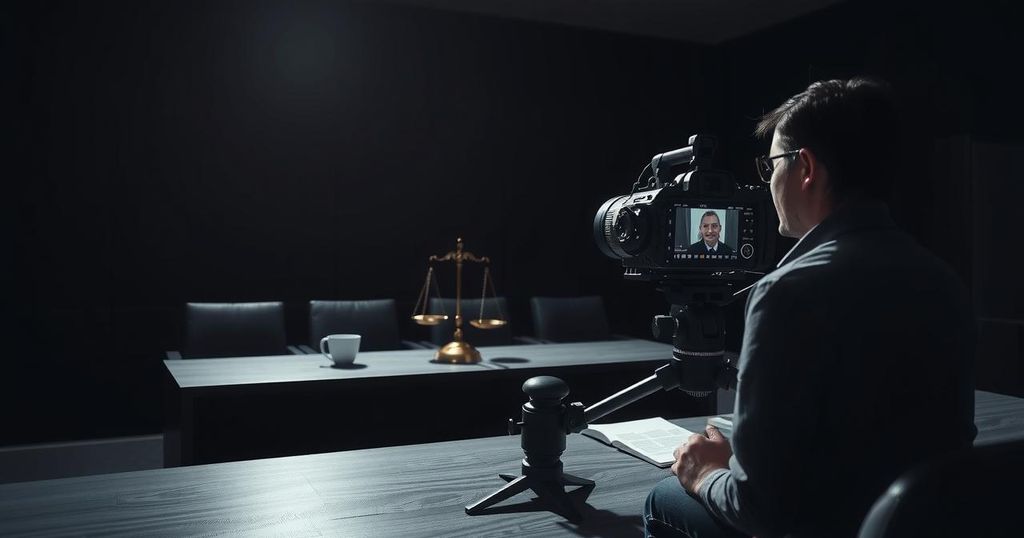The Impact of Headley’s Testimony on Tahawwur Rana’s Involvement in the 26/11 Attacks

David Headley’s testimony was crucial in implicating Tahawwur Rana in the 26/11 Mumbai attacks. Headley detailed his communications with Rana and revealed Rana’s logistical and financial support in planning the attacks. Rana, despite being convicted for different terrorist activities, was acquitted of direct involvement in the Mumbai attacks. This testimony has significant legal implications as India seeks to extradite Headley for accountability.
The testimony of David Coleman Headley was pivotal in implicating Tahawwur Rana in the 26/11 attacks in Mumbai. During a video deposition in 2016, Headley confirmed his extensive communication with Rana and stated that he sought Rana’s approval to establish a business office in Mumbai as a cover for his reconnaissance activities related to the terror plot. The National Investigation Agency’s chargesheet indicated that Rana aided Headley by providing logistical and financial support.
Rana was previously convicted in the US for his association with Lashkar-e-Taiba, the organization responsible for the attacks. A US court found him guilty of conspiracy related to a different attack, but he was acquitted of involvement in the Mumbai attacks. Nonetheless, the trial exposed his longstanding relationship with Headley. Headley’s testimony in Mumbai clarified Rana’s involvement, eliminating any ambiguity about his role in the conspiracy.
During his deposition, Headley recounted the planning and execution of the attacks, emphasizing Rana’s significant contributions. The FBI reported that after Rana’s 2009 conviction, he admitted awareness of Lashkar’s terrorist nature and confirmed Headley’s participation in training camps, leading to the tragic events in Mumbai. This included Headley’s surveillance missions in India preceding the attacks.
Furthermore, Headley recounted a conversation in mid-2006 with Lashkar members regarding the establishment of an immigration office in Mumbai to disguise his activities. He received Rana’s consent to open a First World office there, seeking to utilize it for his reconnaissance work. This approval was substantiated through emails and documents traced back to Rana’s involvement.
Headley reiterated that the Lashkar orchestrated the 2008 Mumbai attack, underscoring that he conducted extensive groundwork for two years, including meeting with important figures in the ISI and participating in boat tours. His strong connections to the organization were solidified through training and interaction with prominent leaders, directly linking him to the attacks.
In his US-based deposition, Headley confirmed his operational relationship with Rana in organizing surveillance in India. His testimony aligned with findings from the corresponding US trials. Notably, he emphasized his conversations regarding obtaining visas and supporting documentation for his covert activities.
Headley, who has been sentenced to 35 years in prison, has been sought by India for extradition, contrasting with Rana, who did not plead guilty or cooperate with US authorities. Assistant US Attorney John J Lulejian highlighted this discrepancy during legal proceedings. Although India insists on Headley’s return, his plea agreement protects him from extradition.
In summary, the deposition of David Headley has been instrumental in clarifying the connection between Tahawwur Rana and the terrorist activities surrounding the 26/11 attacks. With Headley’s accountable approach contrasting Rana’s refusal to accept guilt, the legal implications continue to unfold, reflecting the complexity of international terrorism and justice.
The testimony of David Coleman Headley served as a critical turning point in establishing Tahawwur Rana’s involvement in the 26/11 Mumbai attacks. Headley’s detailed account of coordination with Rana, including logistical support and cover for attack preparations, highlighted Rana’s role in the conspiracy. Rana’s history of association with terrorist organizations further substantiated these claims. Despite Rana’s different legal status compared to Headley, who cooperated with US authorities, the evidentiary burden established through Headley’s testimony continues to impact ongoing judicial perspectives.
Original Source: www.ndtv.com





